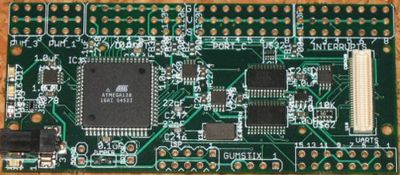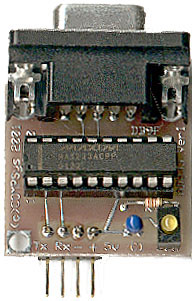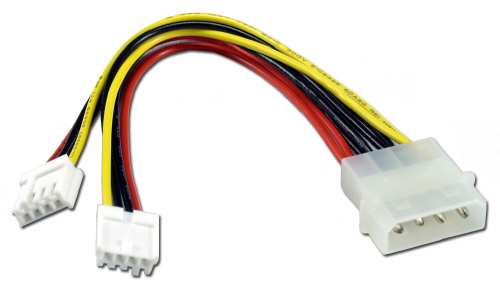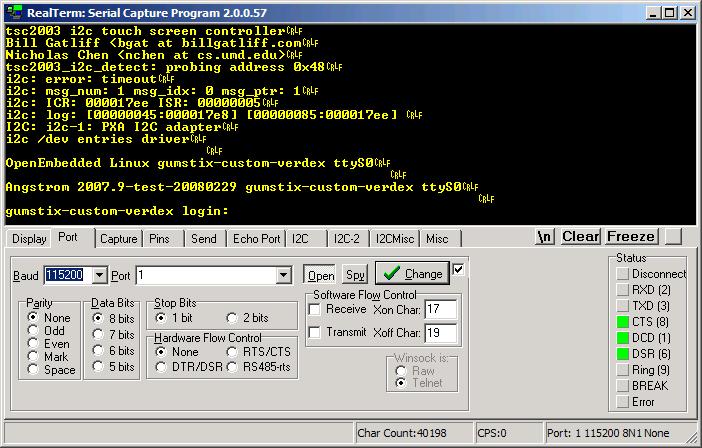HouseRobot:RobostixConsole
I successfully got a console by using the "gumstix" port from the Robostix. Look for the label "gumstix" in the lower just right of center on the robostix board. Here is a photo:
Notice the pin label "1". This isn't on my newer robostix. I do see it on my old burnt out robostix though. The gumstix port brings the FFUART pins out in 5v logic-level form.
| Pin | Signal |
|---|---|
| 1 | Gnd |
| 2 | FFUART TxD (GPIO 39) |
| 3 | +5 |
| 4 | FFUART RxD (GPIO 34) |
Here is the Max233 TTL to RS232 adapter that I used. Pin 1 is closest to the hole in the bottom left of the folloing photo:
The mapping to my Max233 Adapter is as follows:
| Signal | Robostix Pin | Max233 Pin | Max233 Label |
|---|---|---|---|
| Gnd | 1 | 3 | - |
| FFUART TxD (GPIO 39) | 2 | 1 | Tx |
| +5 | 3 | 4 | + 5v |
| FFUART RxD (GPIO 34) | 4 | 2 | Rx |
I built the cable out of the two ends of a floppy power cable and wired it as described in the above table.
*NOTE*: I must be careful when plugging the cable in as it does make a difference. I'm going to label each end of the cable. One side for the gumstix port and the other for the TTL adapter.
I was able to get a console by plugging a cable from the Max233 Adapter into my Belkin RS232 to USB adapter (Model F5U409). I'm using a RS232 to USB adapter since my laptop doesn't have a serial port. I used RealTerm for my terminal program and had my RS232->USB adapter on COM 1. I set the following settings:
| Baud Rate | Parity | Data Bits | Stop Bits | Hardware Flow Control |
|---|---|---|---|---|
| 115200 | None | 8 | 1 | None |
Here is the console:



